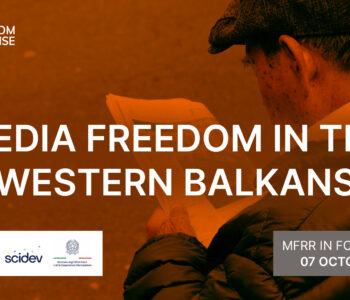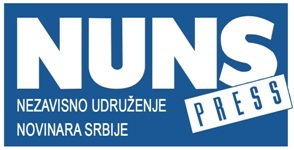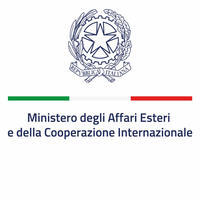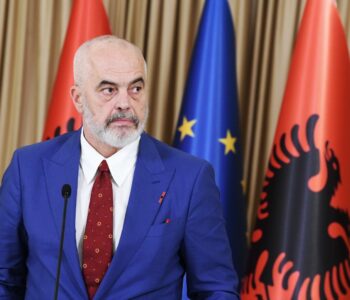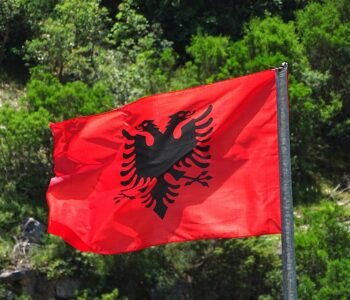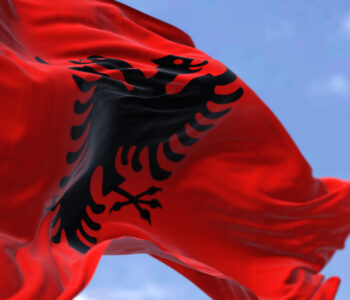 Library
Library
TikTok ban in Albania threatens freedom of expression ahead…
SafeJournalists Network and Media Freedom Rapid Response: TikTok ban in Albania threatens freedom of expression ahead of general elections
SafeJournalists Network (SJN), the Media Freedom Rapid Response (MFRR) partners, and civil society organisations express serious concern regarding the Albanian Council of Ministers’ decision on March 6, 2025, to suspend nationwide access to the TikTok platform for 12 months. While we acknowledge the government’s stated intention to protect children from harmful content and safeguard personal data, we strongly underline that such protective measures must fully respect fundamental human rights, particularly freedom of expression, access to information, and due process.
11.03.2025
Freedom of Expression and Proportionality
We emphasise that a total platform ban represents an extreme restriction of the right to freedom of expression and access to information. An outright suspension of an entire platform significantly exceeds proportionality, impacting the legitimate expression of all users and restricting public debate and access to diverse sources of information.
Alternative targeted solutions, such as robust content moderation, age verification, and enhanced user education programs, should have been fully explored prior to introducing a total ban. This measure’s overly broad nature sets a dangerous precedent for disproportionate state interference with digital rights.
As an EU candidate country, Albania is expected to uphold European standards on rule of law and fundamental freedoms. The EU’s Digital Services Act (DSA) framework emphasises platform accountability and content moderation transparency with a risk-based and proportionate approach. The DSA favours holding platforms accountable for managing risks on their services rather than punishing users by shutting the services down. We encourage Albania to align its approach with this paradigm.
Democratic and Electoral Concerns
With parliamentary elections approaching in May 2025, the timing of this suspension is particularly troubling. TikTok has become an emerging platform for political communication and voter engagement, especially for young people, first-time voters, and newly formed political parties and movements, who have argued that they will be disproportionately impacted. By limiting access to this platform, the government risks suppressing these emerging voices, diminishing political pluralism, and creating a chilling effect that may extend beyond TikTok users, affecting journalists, content creators, civil society activists, and civic watchdogs.
Due Process and Transparency
We note that the decision follows Prime Minister Rama’s public announcement in December 2024 indicating consultations with selected parents and educators. However, there remains insufficient publicly available evidence on these consultations’ scope, representativeness, and outcomes. We emphasise that decisions of this scale and significance should be based on thorough, transparent, and inclusive consultations involving civil society organisations, media organisations, industry, digital rights advocates, and affected communities.
Risks of Setting a Dangerous Precedent
We express concern that implementing a platform-wide ban creates a troubling precedent for Albania and the region. When governments claim broad authority to shut down popular platforms due to content concerns, they risk opening the door to further restrictions, threatening internet freedom more broadly. We urge the Albanian authorities to avoid establishing such a precedent, ensuring that future content issues are addressed through targeted, evidence-based, and proportionate measures.
Recommendations
We call on the Albanian government to immediately revoke the suspension of TikTok and initiate an inclusive and transparent consultation process involving parliament, civil society, media organisations, digital rights advocates, and international partners. This consultation should aim to develop a proportionate and evidence-based regulatory framework in line with European standards, particularly the EU’s Digital Services Act (DSA). This approach will enable Albania to effectively address legitimate concerns about child safety and data privacy, while fully safeguarding freedom of expression, democratic discourse, and due process—especially critical in the context of the upcoming elections.
This statement was coordinated by the SafeJournalists Network and joined by the Media Freedom Rapid Response (MFRR), a Europe-wide mechanism which tracks, monitors and responds to violations of press and media freedom in EU Member States and Candidate Countries.



